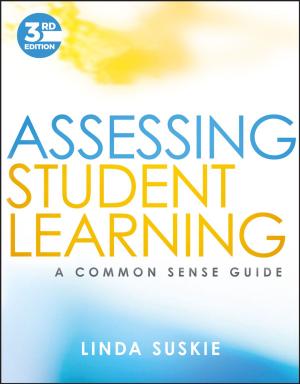Handbook of Child Psychology and Developmental Science, Theory and Method
Nonfiction, Health & Well Being, Psychology, Child & Adolescent, Child Psychology| Author: | Richard M. Lerner, Willis F. Overton, Peter C. M. Molenaar | ISBN: | 9781118952962 |
| Publisher: | Wiley | Publication: | March 31, 2015 |
| Imprint: | Wiley | Language: | English |
| Author: | Richard M. Lerner, Willis F. Overton, Peter C. M. Molenaar |
| ISBN: | 9781118952962 |
| Publisher: | Wiley |
| Publication: | March 31, 2015 |
| Imprint: | Wiley |
| Language: | English |
The essential reference for human development theory, updated and reconceptualized
The Handbook of Child Psychology and Developmental Science, a four-volume reference, is the field-defining work to which all others are compared. First published in 1946, and now in its Seventh Edition, the Handbook has long been considered the definitive guide to the field of developmental science.
Volume 1, Theory and Method, presents a rich mix of classic and contemporary theoretical perspectives, but the dominant views throughout are marked by an emphasis on the dynamic interplay of all facets of the developmental system across the life span, incorporating the range of biological, cognitive, emotional, social, cultural, and ecological levels of analysis. Examples of the theoretical approaches discussed in the volume include those pertinent to human evolution, self regulation, the development of dynamic skills, and positive youth development. The research, methodological, and applied implications of the theoretical models discussed in the volume are presented.
- Understand the contributions of biology, person, and context to development within the embodied ecological system
- Discover the relations among individual, the social world, culture, and history that constitute human development
- Examine the methods of dynamic, developmental research
- Learn person-oriented methodological approaches to assessing developmental change
The scholarship within this volume and, as well, across the four volumes of this edition, illustrate that developmental science is in the midst of a very exciting period. There is a paradigm shift that involves increasingly greater understanding of how to describe, explain, and optimize the course of human life for diverse individuals living within diverse contexts. This Handbook is the definitive reference for educators, policy-makers, researchers, students, and practitioners in human development, psychology, sociology, anthropology, and neuroscience.
The essential reference for human development theory, updated and reconceptualized
The Handbook of Child Psychology and Developmental Science, a four-volume reference, is the field-defining work to which all others are compared. First published in 1946, and now in its Seventh Edition, the Handbook has long been considered the definitive guide to the field of developmental science.
Volume 1, Theory and Method, presents a rich mix of classic and contemporary theoretical perspectives, but the dominant views throughout are marked by an emphasis on the dynamic interplay of all facets of the developmental system across the life span, incorporating the range of biological, cognitive, emotional, social, cultural, and ecological levels of analysis. Examples of the theoretical approaches discussed in the volume include those pertinent to human evolution, self regulation, the development of dynamic skills, and positive youth development. The research, methodological, and applied implications of the theoretical models discussed in the volume are presented.
- Understand the contributions of biology, person, and context to development within the embodied ecological system
- Discover the relations among individual, the social world, culture, and history that constitute human development
- Examine the methods of dynamic, developmental research
- Learn person-oriented methodological approaches to assessing developmental change
The scholarship within this volume and, as well, across the four volumes of this edition, illustrate that developmental science is in the midst of a very exciting period. There is a paradigm shift that involves increasingly greater understanding of how to describe, explain, and optimize the course of human life for diverse individuals living within diverse contexts. This Handbook is the definitive reference for educators, policy-makers, researchers, students, and practitioners in human development, psychology, sociology, anthropology, and neuroscience.















